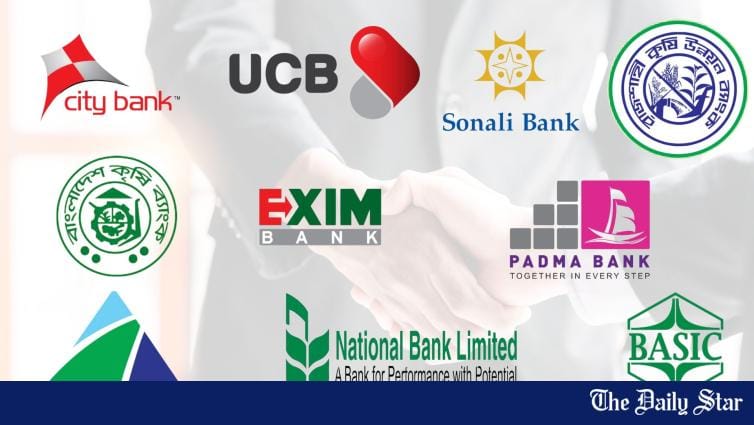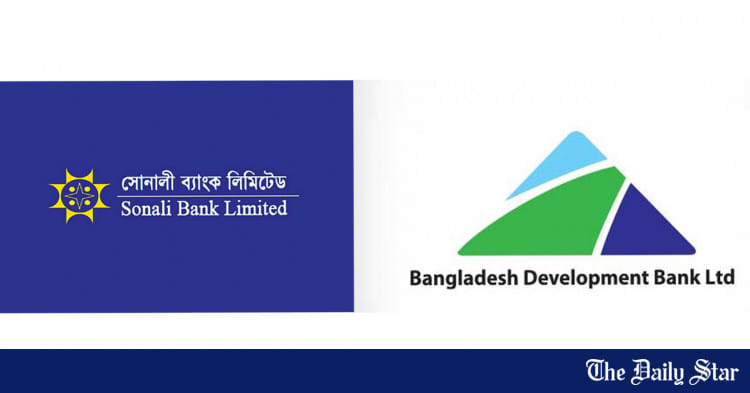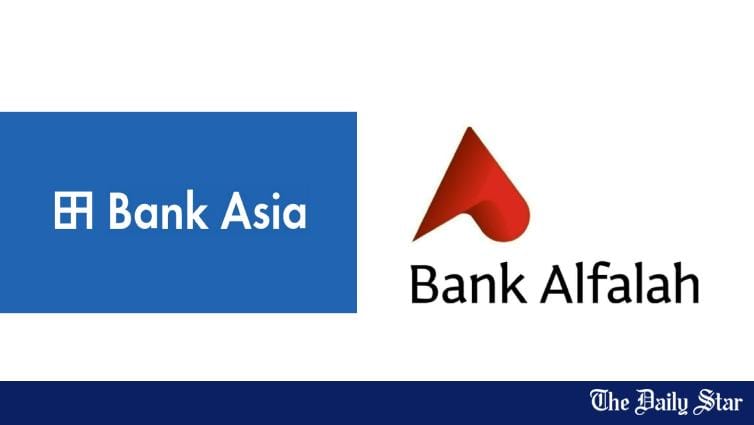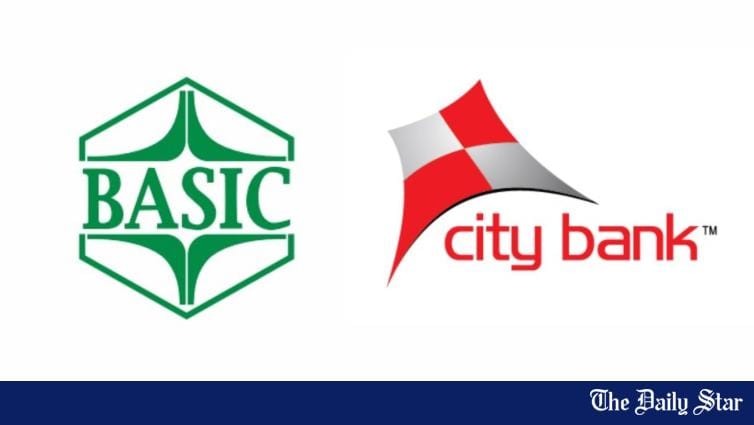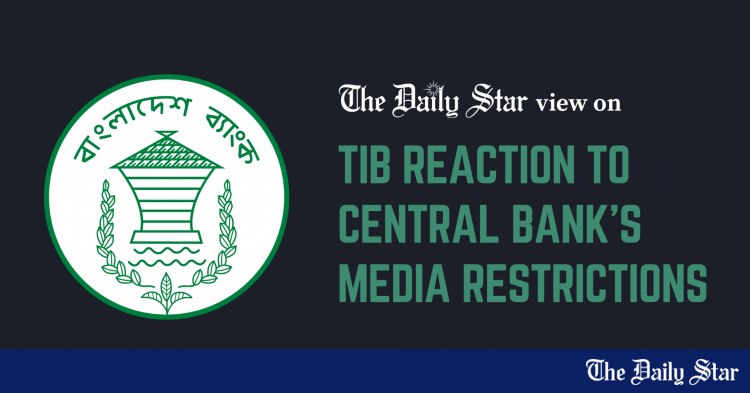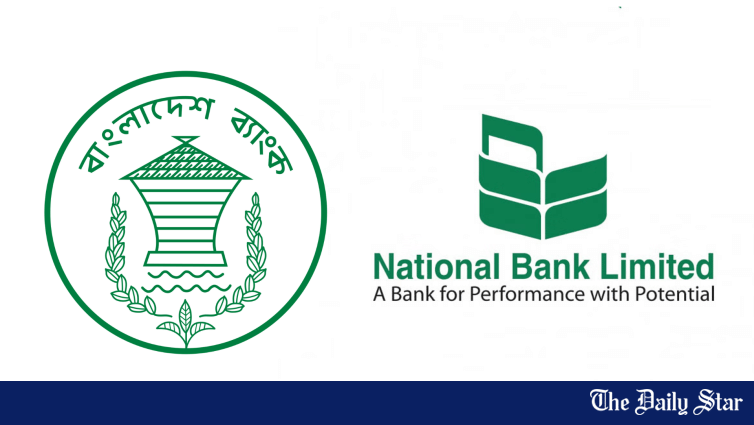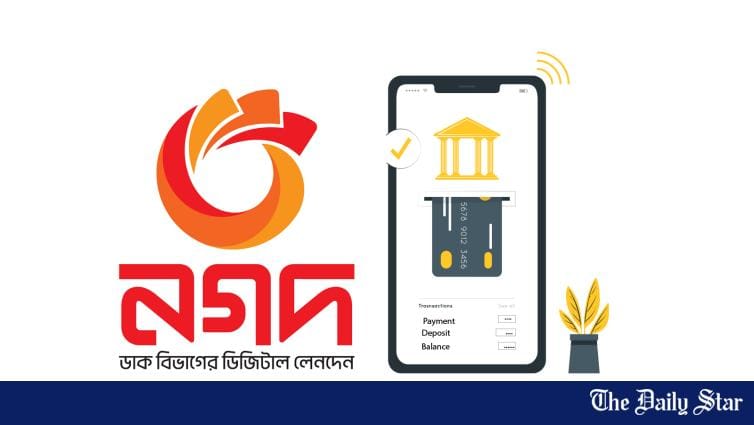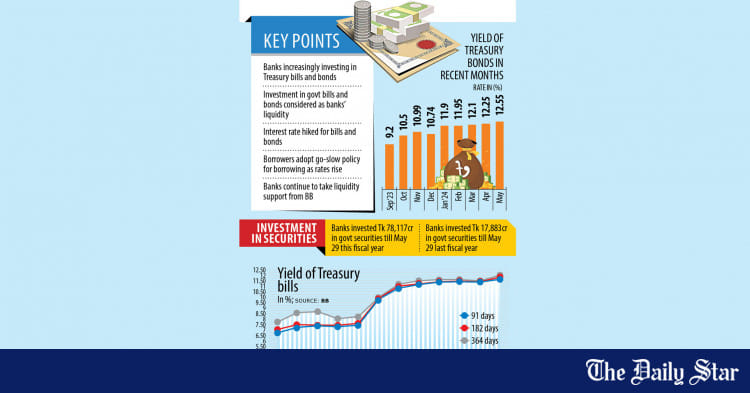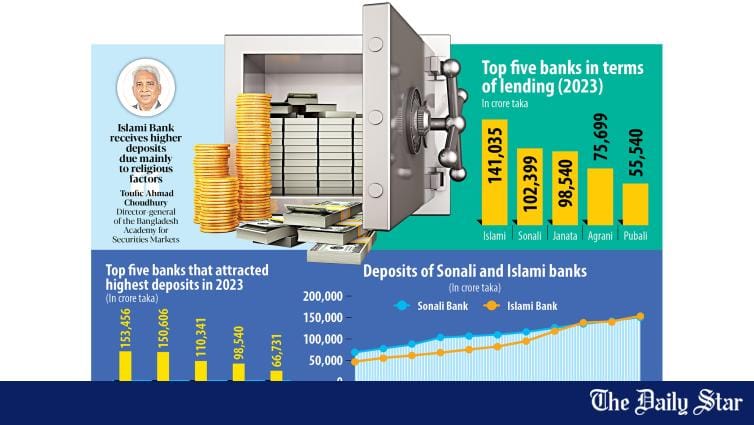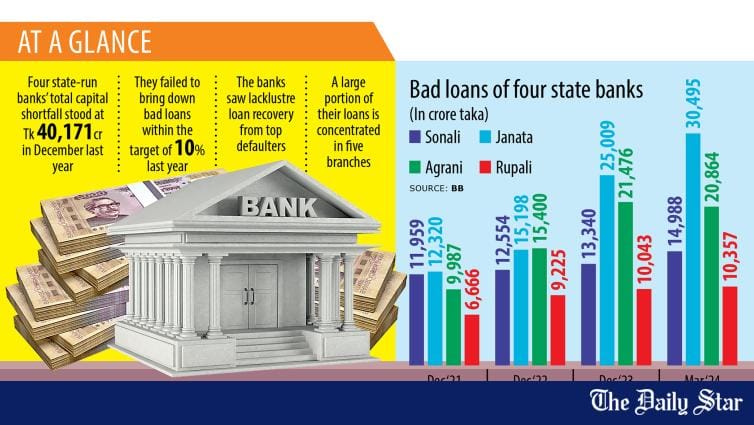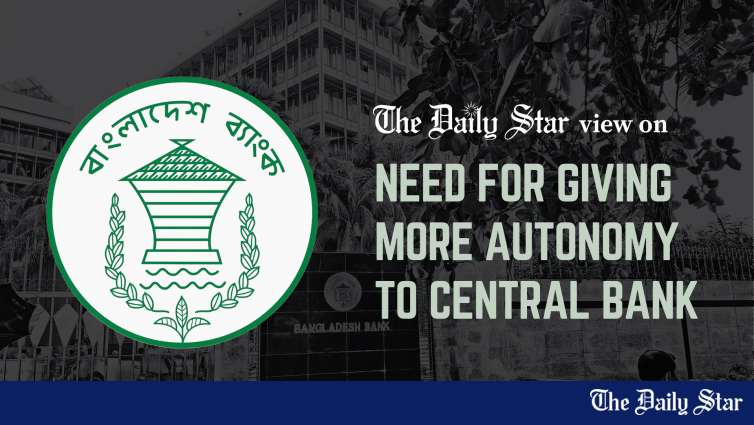Bank mergers: navigating challenges, seizing opportunities
MD. TOUHIDUL ALAM KHAN
Published :
Apr 08, 2024 22:03
Updated :
Apr 08, 2024 22:03

In the ever-evolving landscape of Bangladesh's financial sector, a profound transformation is underway, driven by strategic mergers guided by the Bangladesh Bank. These mergers represent a pivotal moment, promising to reshape the banking industry's future while addressing pressing challenges. However, beneath their surface lies a complex interplay of factors that demand a comprehensive understanding and strategic navigation.
Think of two banks standing at opposite ends of a spectrum: one embodies strength, stability, and resilience, while the other grapples with weaknesses and vulnerabilities, struggling against the tides of economic uncertainty. As the Bangladesh Bank issues directives for a merger, its aim is clear: to build a unified entity that harnesses the strengths of both while mitigating their weaknesses. This endeavour holds immense promise, but it also poses significant challenges that warrant careful consideration and meticulous planning.
At the heart of bank mergers lies the issue of stability. By integrating weaker banks with their stronger counterparts, the overarching goal is to reinforce the financial sector's foundation, making it more robust and resilient in the face of market volatility. Stronger banks bring to the table a wealth of resources, including robust risk management practices and substantial capital reserves, which serve as a bulwark against systemic risks. However, achieving this stability is contingent upon navigating valuation intricacies and overcoming integration hurdles.
Operational efficiency stands as another cornerstone of bank mergers. Through consolidation, banks aim to streamline their operations, eliminate redundancies, and optimise resource utilisation. This not only translates into cost savings but also fosters a culture of efficiency and innovation within the merged entity. Yet, the path to operational excellence is rife with challenges, particularly concerning the integration of disparate systems, processes, and organizational cultures.
One of the most formidable challenges in bank mergers is cultural integration. Each bank boasts its own unique organisational culture, shaped by its history, values, and operating principles. Merging these distinct cultures requires finesse, empathy, and effective communication to bridge gaps and foster a sense of unity and purpose within the combined entity. Failure to address cultural disparities can lead to internal friction, hampering productivity and eroding employee morale.
Despite the potential benefits, bank mergers inevitably give rise to concerns. Chief among these is the threat of job losses, as mergers often result in workforce rationalisation and redundancies. To allay fears and safeguard employee interests, the Bangladesh Bank has instituted guidelines mandating job security for employees of merged entities for a stipulated period. While this measure provides a degree of reassurance, it also introduces complexities related to organisational culture and performance management.
Regulatory supervision plays a pivotal role in ensuring the integrity and efficacy of bank mergers. Regulatory bodies must enforce compliance with guidelines and regulations governing mergers to safeguard the interests of stakeholders. This entails conducting thorough due diligence assessments to identify potential risks and issues and implementing legal provisions to hold accountable those responsible for past misconduct, including defaulters and unethical bank employees.
As Bangladesh's banking sector undergoes a profound transformation through mergers and acquisitions, it stands at a crossroads, brimming with both challenges and opportunities. By navigating these challenges with foresight, resilience, and strategic planning, the sector can emerge stronger, more resilient, and better equipped to meet the evolving needs of its customers and drive sustainable economic growth.
Md. Touhidul Alam khan is the Managing Director & CEO of National Bank Limited.
MD. TOUHIDUL ALAM KHAN
Published :
Apr 08, 2024 22:03
Updated :
Apr 08, 2024 22:03
In the ever-evolving landscape of Bangladesh's financial sector, a profound transformation is underway, driven by strategic mergers guided by the Bangladesh Bank. These mergers represent a pivotal moment, promising to reshape the banking industry's future while addressing pressing challenges. However, beneath their surface lies a complex interplay of factors that demand a comprehensive understanding and strategic navigation.
Think of two banks standing at opposite ends of a spectrum: one embodies strength, stability, and resilience, while the other grapples with weaknesses and vulnerabilities, struggling against the tides of economic uncertainty. As the Bangladesh Bank issues directives for a merger, its aim is clear: to build a unified entity that harnesses the strengths of both while mitigating their weaknesses. This endeavour holds immense promise, but it also poses significant challenges that warrant careful consideration and meticulous planning.
At the heart of bank mergers lies the issue of stability. By integrating weaker banks with their stronger counterparts, the overarching goal is to reinforce the financial sector's foundation, making it more robust and resilient in the face of market volatility. Stronger banks bring to the table a wealth of resources, including robust risk management practices and substantial capital reserves, which serve as a bulwark against systemic risks. However, achieving this stability is contingent upon navigating valuation intricacies and overcoming integration hurdles.
Operational efficiency stands as another cornerstone of bank mergers. Through consolidation, banks aim to streamline their operations, eliminate redundancies, and optimise resource utilisation. This not only translates into cost savings but also fosters a culture of efficiency and innovation within the merged entity. Yet, the path to operational excellence is rife with challenges, particularly concerning the integration of disparate systems, processes, and organizational cultures.
One of the most formidable challenges in bank mergers is cultural integration. Each bank boasts its own unique organisational culture, shaped by its history, values, and operating principles. Merging these distinct cultures requires finesse, empathy, and effective communication to bridge gaps and foster a sense of unity and purpose within the combined entity. Failure to address cultural disparities can lead to internal friction, hampering productivity and eroding employee morale.
Despite the potential benefits, bank mergers inevitably give rise to concerns. Chief among these is the threat of job losses, as mergers often result in workforce rationalisation and redundancies. To allay fears and safeguard employee interests, the Bangladesh Bank has instituted guidelines mandating job security for employees of merged entities for a stipulated period. While this measure provides a degree of reassurance, it also introduces complexities related to organisational culture and performance management.
Regulatory supervision plays a pivotal role in ensuring the integrity and efficacy of bank mergers. Regulatory bodies must enforce compliance with guidelines and regulations governing mergers to safeguard the interests of stakeholders. This entails conducting thorough due diligence assessments to identify potential risks and issues and implementing legal provisions to hold accountable those responsible for past misconduct, including defaulters and unethical bank employees.
As Bangladesh's banking sector undergoes a profound transformation through mergers and acquisitions, it stands at a crossroads, brimming with both challenges and opportunities. By navigating these challenges with foresight, resilience, and strategic planning, the sector can emerge stronger, more resilient, and better equipped to meet the evolving needs of its customers and drive sustainable economic growth.
Md. Touhidul Alam khan is the Managing Director & CEO of National Bank Limited.




